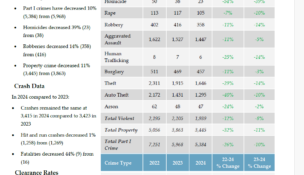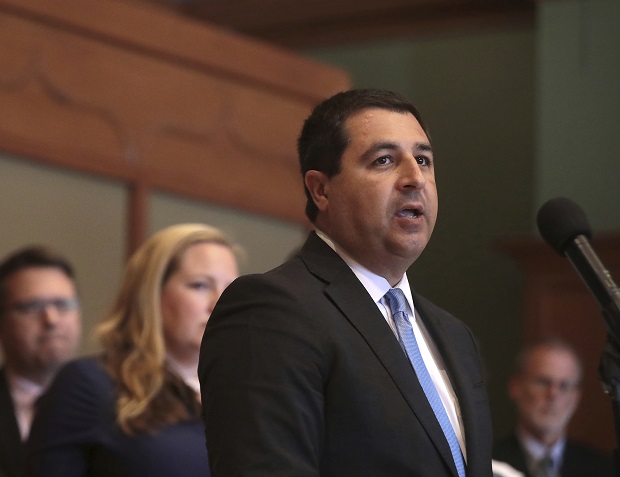Reckless behavior is ‘willful’
By: dmc-admin//June 11, 2007//
 The U.S. Supreme Court held on June 4 that reckless disregard of the notice requirements in the Fair Credit Reporting Act (FCRA) can entitle the consumer to actual, statutory, and punitive damages, reversing the current law in the Seventh Circuit.
The U.S. Supreme Court held on June 4 that reckless disregard of the notice requirements in the Fair Credit Reporting Act (FCRA) can entitle the consumer to actual, statutory, and punitive damages, reversing the current law in the Seventh Circuit.
The case Safeco Ins. Co of America v. Burr, is a consolidation of two cases involving insurers who failed to inform consumers that their automobile insurance rates were based on credit reports containing adverse information.
The FCRA requires that notice be given to any consumer subjected to “adverse action … based in whole or in part on any information contained in a consumer [credit] report.” 15 U.S.C. 1681m(a).
Negligent failure to send notice results only in actual damages, but anyone who “willfully fails” to file notice is liable for actual damages, statutory damages of $100 to $1,000, and punitive damages.
When an applicant applies for auto insurance from GEICO, the insurer compares the rate it is offering the customer with the rate he would have been given had credit history not been considered, and only sends a notice if using a neutral credit score would have resulted in a lower rate.
|
What the court held Case: Safeco Ins. Co. of America v. Burr, Nos. 06-84 & 06-100. Issue: Is reckless conduct included in the FCRA’s definition of “willful” action? Holding: Yes. In civil statutes, “willful” generally includes reckless behavior as well as knowing violations, and nothing in the statute shows intent by Congress to depart from the general rule. |
Safeco Insurance also relies on credit reports to set initial insurance premiums, but does not send adverse action notices when reports result in higher rates.
Both insurers were sued for violating the FCRA. On appeal from district court dismissals of the actions, the Ninth Circuit reversed both.
The Supreme Court granted review and reversed in both cases, in a majority opinion by Justice David H. Souter.
The court held as follows:
1. Willful failure includes violations committed in reckless disregard of the notice obligation, not just knowing violations; and
2. Initial rates charged for new insurance policies may be adverse actions, as well as increases to existing policies.
Applying the holdings to the insurers, the court held that GEICO did not violate the statute at all, and that, while Safeco may have, it did not act recklessly.
Willful Failure
The court concluded that willful failure includes reckless conduct, because, in civil statutes, as opposed to criminal ones, willfulness is generally construed to include not only knowing violations of a standard, but reckless ones, as well.
In addition, at common law, actions in reckless disregard of the law were treated as willful violations.
The insurers argued that Congress intended to change the standard in the FCRA, citing legislative history, but the court found the history was ambiguous, and so gave the language its common meaning for civil statutes.
Initial Rates
The court also held that setting an initial insurance rate can be an adverse action, and the statute is not limited to increases to existing rates.
The court reasoned, “The descriptions of systemic problem and systemic need as Congress saw them do nothing to suggest that remedies for consumers placed at a disadvantage by unsound credit ratings should be denied to first-time victims, and the legislative histories of FCRA’s original enactment and of the 1996 amendment reveal no reason to confine attention to customers and businesses with prior dealings.”
However, the court concluded that basing insurance on an assumed neutral credit report, as GEICO does, is not an adverse action, even though this may prevent some applicants who actually deserve better-than-neutral credit scores from getting notice.
The court acknowledged that the neutral-score baseline will leave some consumers without a notice that might lead to discovering errors, most likely young people who have not yet established a good credit history.
However, the court concluded this problem was not as bad as the alternative problems attendant with “hypernotification.”
If notification was required because of an assumed neutral score, the court found, insurers would have to send notice to every applicant who had not yet established a credit history, stating that his rate was based on bad credit.
The court concluded, “We think that the consequence of sending out notices on this scale would undercut the obvious policy behind the notice requirement, for notices as common as these would take on the character of formalities, and formalities tend to be ignored.”
Application
Applying the holdings to the cases, the court held that GEICO’s policy did not violate the FCRA, because the initial rates it offers are the same as they would b
e if credit was not taken into account.
The court then held that Safeco was not liable, because even if it should have sent notices, its failure to do so was not reckless.
|
Related Article |
||
Although the court disagreed with Safeco’s interpretation of the statute — that initial rates can never be an adverse action — it found that the interpretation was reasonable and had foundation in the text of the statute; thus, its actions could not be deemed reckless. The court also noted that none of the circuit courts of appeals or the Federal Trade Commission had yet spoken on the issue.
Accordingly, the court reversed both decisions.
Concurrences
Justice John Paul Stevens penned a concurrence, joined by Justice Ruth Bader Ginsburg, taking issue with the court’s analysis on whether using a neutral credit score can require a notice.
Stevens wrote, “I find it difficult to believe that Congress could have intended for a company’s unrestrained adoption of a ‘neutral’ score to keep many (if not most) consumers from ever hearing that their credit reports are costing them money.”
Justice Clarence Thomas wrote a concurrence, joined by Justice Samuel A. Alito, asserting that the court should have only held that Safeco did not act recklessly, without deciding the merits of Safeco’s argument that the notice requirement does not apply to the setting of initial rates.
Justice Antonin Scalia joined all of the lead opinion, save for two footnotes citing legislative history to support the decision.
Click here for Case Analysis.
David Ziemer can be reached by email.
Legal News
- Steven Avery prosecutor Ken Kratz admits ‘mistakes were made’
- Colombian national extradited to Milwaukee faces International narcotics-trafficking conspiracy charge
- MPD: Milwaukee homicides down nearly 40 percent compared to last year
- EVERS: Republican lawmakers No-Show at special meeting to release statewide PFAS funding, stabilize healthcare access
- Wisconsin ICAC Task Force conference on Missing and Exploited Children highlights increase in sextortion cases
- More than 300 Wisconsin officers back in law enforcement after being fired or forced out
- Former Trump staffer who said to ‘fan the flame’ after 2020 loss hired to lead Wisconsin GOP
- Gov. Evers appoints David Casey to Serve as DOR Secretary
- Former Marine sentenced for Molotov Cocktail attack against Planned Parenthood Clinic
- ABA names 34th Annual Margaret Brent Women Lawyers of Achievement Awards honorees
- FBI launches criminal investigation into Key Bridge collapse
- Man charged in slaying after woman’s leg found at Milwaukee-area park
WLJ People
- Power 30 Personal Injury Attorneys – Russell Nicolet
- Power 30 Personal Injury Attorneys – Benjamin Nicolet
- Power 30 Personal Injury Attorneys – Dustin T. Woehl
- Power 30 Personal Injury Attorneys – Katherine Metzger
- Power 30 Personal Injury Attorneys – Joseph Ryan
- Power 30 Personal Injury Attorneys – James M. Ryan
- Power 30 Personal Injury Attorneys – Dana Wachs
- Power 30 Personal Injury Attorneys – Mark L. Thomsen
- Power 30 Personal Injury Attorneys – Matthew Lein
- Power 30 Personal Injury Attorneys – Jeffrey A. Pitman
- Power 30 Personal Injury Attorneys – William Pemberton
- Power 30 Personal Injury Attorneys – Howard S. Sicula











